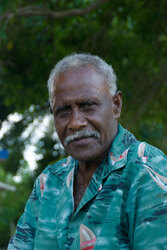In recent years, Vanuatu has been learning to manoeuvre in this demanding and rather tricky role. To further complicate things, there is more than one elephant in this particular bed. Between the EU, the WTO, China and our other regional neighbours, trade and aid negotiators in Vanuatu have had their hands full.
Happily, 3000 years of practice in patient negotiation and peace-making have so far paid off. To mix metaphors, Vanuatu has of late consistently punched well above its weight when it comes to negotiating this sometimes parlous state of affairs.
But our work isn’t finished yet, and if anything, the stakes are higher now than they’ve been in years. Time is not on our side and the elephants are encroaching once again.
[Originally published in the Vanuatu Daily Post’s Weekender Edition.]
“Living next to you is in some ways like sleeping with an elephant. No matter how friendly and even-tempered is the beast, if I can call it that, one is affected by every twitch and grunt.”
Canadian Prime Minister Pierre Trudeau offered this wry description of relations between Canada and the US at the Washington Press Club back in 1969. Had he been a ni-Vanuatu politician addressing the press in Canberra, he might have used an aquatic simile, but the message would have been the same.
In recent years, Vanuatu has been learning to manoeuvre in this demanding and rather tricky role. To further complicate things, there is more than one elephant in this particular bed. Between the EU, the WTO, China and our other regional neighbours, trade and aid negotiators in Vanuatu have had their hands full.
Happily, 3000 years of practice in patient negotiation and peace-making have so far paid off. To mix metaphors, Vanuatu has of late consistently punched well above its weight when it comes to negotiating this sometimes parlous state of affairs.
But our work isn’t finished yet, and if anything, the stakes are higher now than they’ve been in years. Time is not on our side and the elephants are encroaching once again.

 The problem with having 850 words a week is that I can only say one thing at a time.
The problem with having 850 words a week is that I can only say one thing at a time.